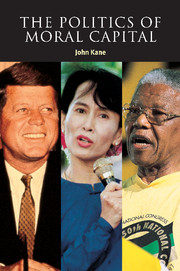Introduction
Published online by Cambridge University Press: 22 September 2009
Summary
During the historic first visit by a US head of state to the new South Africa in March 1998, President Bill Clinton listened to President Nelson Mandela boldly defend an idiosyncratic foreign policy that countenanced friendly relations with Cuba, Libya and Iran, states regarded by the Americans as “pariahs.” The US president chuckled indulgently and blandly agreed to disagree on such matters. Clinton, according to Washington Post correspondent John Harris, was less interested in foreign policy differences than in basking in the “aura of moral authority that had made Mandela so revered.” Clinton went so far as to draw lessons from the Mandela myth for his own critics back home. The South African leader's odyssey from political prisoner to president was, he said, a lesson “in how fundamental goodness and courage and largeness of spirit can prevail over power lust, division and obsessive smallness in politics.” The clear reference to the sexual scandals in which Clinton was then currently and apparently endlessly embroiled was, remarkably, not followed up by journalists, who declined to raise a subject that they had determinedly pursued for the previous two months. “It was as if,” commented Harris, “the luminescent presence of Mandela… had briefly chased away the usual appetite for controversy.”
- Type
- Chapter
- Information
- The Politics of Moral Capital , pp. 1 - 4Publisher: Cambridge University PressPrint publication year: 2001

